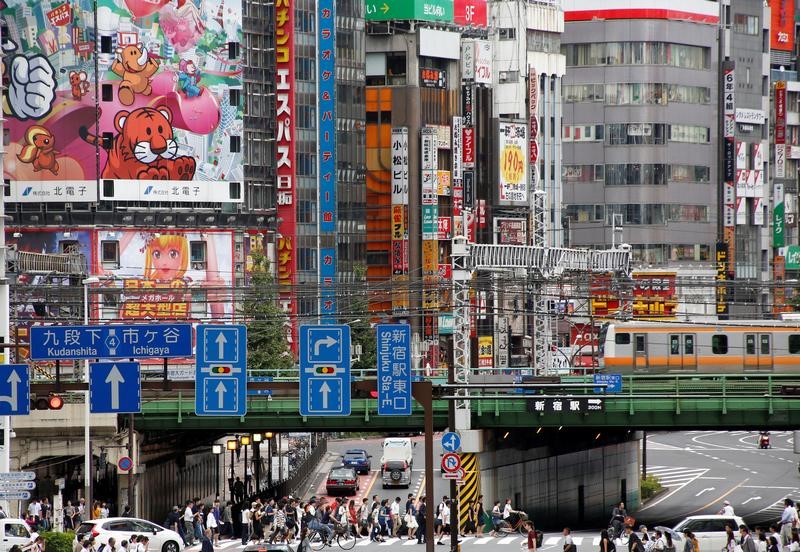Bitcoin price today: surges to $122k, near record high on US regulatory cheer
(Bloomberg) -- Japan’s economy was expanding at a faster pace than initially estimated last quarter ahead of a record surge in virus cases that contributed to Prime Minister Yoshihide Suga’s decision to step down.
Gross domestic product grew at an annualized pace of 1.9% in the three months to June, buoyed by companies’ capital spending, extra government spending and stronger private consumption, according to a revised report by the Cabinet Office on Wednesday.
Economists had expected growth of 1.6% compared with an initial government estimate of 1.3%.
The heftier spending by businesses suggests the corporate world is already looking at growth beyond the pandemic.
Still, the subsequent surge in cases during Japan’s Olympic summer is likely to have had a bigger impact on spending by firms and shoppers this quarter. It remains unclear who will replace Suga, but economists expect the new premier will unveil a stimulus package to shore up the recovery as the nation heads into a general election this autumn.
Key Insights
- The revised figures show that Japan avoided falling back into recession despite returning to a state of emergency, but Suga’s failure to stop the sharp jump in infections ultimately proved more significant as public support for his premiership drained away.
- Suga’s replacement will need to do a better job at balancing the goals of keeping Covid under control, protecting the economy and charting a path toward normalizing activity through vaccinations and a lifting of restrictions.
- Fumio Kishida, one of the candidates vying to become prime minister, cited a past government report that the gap between supply and demand was about 30 trillion yen ($272 billion) when asked by Bloomberg about the possible size of economic package should he take the helm.
- Today’s figures won’t move the needle on the Bank of Japan’s monetary stimulus, given that prices are falling. BOJ board members have recently pointed out the recovery of the economy will be delayed and that easing must continue.
What Bloomberg Economics Says...
“The delta variant outbreak is increasing downside risks -- boosting the likelihood of another large dose of fiscal stimulus.”
--Yuki Masujima, economist
For the full report, click here
Get More
- Capital spending climbed a non-annualized 2.3% from the previous quarter in an upward revision from 1.7%. A finance ministry survey released last week had pointed to higher capex levels.
- Government spending was revised up to 1.3% from 0.5% while private consumption rose 0.9% compared with an initial 0.8% estimate.
©2021 Bloomberg L.P.
